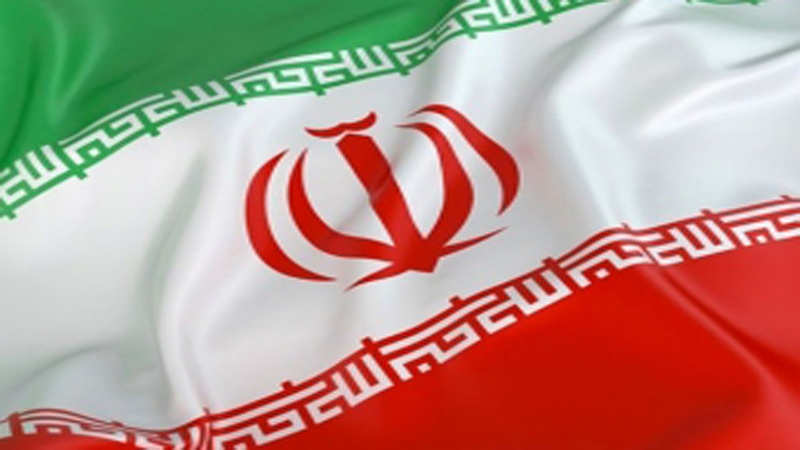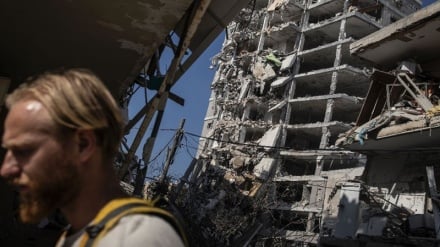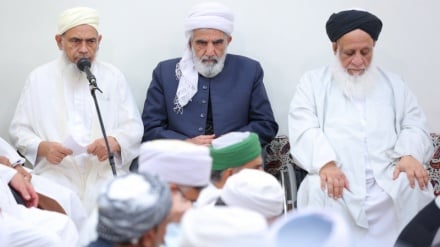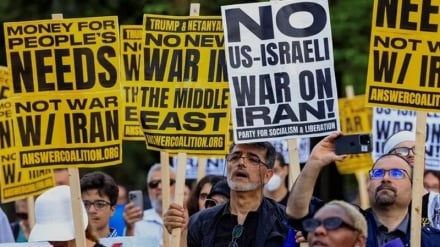Resistance Economy (1)
Resistance economy is defined as reinforcement of the economy in the face of foreign and domestic shocks and threats, which maintains a long precedent in the science of economics. Many countries have sought such an economy, with each country selecting its specific approach via reliance upon its organizations and establishments.
In Iran, this concept, in addition to its economic definition, maintains a revolutionary connotation, which is steadfastness and resilience against hegemonic powers. The domineering powers have always made strenuous efforts to make the economies of independent countries reliant on these hegemonic powers, and to impose foreign shocks on these independent economies in a bid to somehow dominate the conduct of these countries.
Resistance economy, which aims to liberate world countries from the yoke of reliance upon hegemonic powers, can be considered as a major stride against the hegemonic powers, and a means to cement spiritual values, demands for justice, and broadmindedness across the globe. Even a significant number of residents of hegemonic states have been impacted by the detrimental impacts of such as economy, namely racial discrimination against people of color in the US, and mounting poverty and economic inequity in these states, in addition to mounting and unbridled rate of unemployment in Europe, that in turn has provoked violence and bolstered terrorist outfits at the heart of Europe. Hence, the rectification of these equations is the demand of the residents of independent and freedom-seeking countries, as well as the overwhelming majority of Westerners.
The behavioral patterns of the domineering regimes show that imposition of economic sanctions is an inducement applied by these regimes to force other countries toward a behavioral pattern, favored by hegemonic regimes. For the first time, Western regimes imposed embargoes on Iran throughout the premiership of Dr. Mohammad Mosaddeq in the year 1953, given that he was making every effort to nationalize Iran’s oil industry. In this case, the Western regimes aimed to somehow contain the efforts for nationalization of Iran’s oil industry via imposition of sanctions and economic pressure on Iran, which totally relied on oil revenues for propelling its economy. Upon the victory of Iran’s Islamic Revolution, the Western regimes, especially the US, began to impose economic sanctions against the Islamic Republic of Iran.
The vulnerability of a country’s economy can be the consequence of imposition of economic pressures, such as imposition of politically-motivated economic sanctions; a prime example of which is the US hostile measures against Islamic Iran with the intention of obstruction of Iran’s development. This trend continues to this day, despite the implementation of the Joint Comprehensive Plan of Action, which was concluded between Iran and 5+1 Group member states.
On March 15, 1995, the then US president, Bill Clinton, under the pretext of protection of US security, issued an instruction which banned assistance to development of Iran’s oil reserves, and prohibited American companies from any transaction or participation in the financial contracts and deals in the realm of Iran’s oil and natural gas industry. On this basis, the American real or legal entities , or the legal entities which are administered by American nationals, have been banned from participation in a contract, or presentation of letters of guarantee to third parties in contracts that include supervision or management of development of Iran’s oil reserves, and finance of the development and expansion of Iran’s oilfields. The US Treasury was obliged to declare, supervise, and implement this act; with all the US organizations duty-bound to cooperate to this end. On the basis of this act, the American Company Conoco was forced to annul its $550m deal for development of Iran’s Siri Oilfield, and was thereafter replaced by the French oil giant, Total.
In the past three decades, Iran has experienced the imposed war; economic sanctions and pressures. Thus, irrespective of to what extent sanctions would be removed and/or to what extent conditions would change; this era has raised an opportunity for, and has seasoned Iran’s economy. Based on this approach, Iran is resolved to take major strides for its reinforcement within the framework of Resistance Economy. In fact, Resistance Economy provides an avenue for meeting fundamental economic needs in relation to terms of production and distribution of goods and services, while sanctions have been imposed on Iran’s economy.
Resistance Economy also provides a role model which has focused on the national economic independence. This feature of Resistance Economy is of importance, given the economic meltdowns that have threatened many countries, and can lead to prevention of wastage of capitals and sources of production. Resistance Economy is defined as the reinforcement of the economy in the face of foreign shocks and fluctuations which have been named in economic theories. For instance, the 1973 oil shock and oil price hikes in those years caused a stagflation in the economies of US and Western regimes.
Economists, in an effort to find a solution for these shocks, presented a variety of views in the economic sector; one of the most important of which was presented in the US in 1980s and during Ronald Reagan’s presidential term. In those years, one of the leading economists called on American decision makers to lower taxes in order to get rid of stagflation, which was rooted in the foreign oil price shocks, so that on one hand producers would be encouraged to up the supply of goods and services, and, on the other hand, with the reduction of taxes, and a rise of peoples’ incomes, the rate of consumption and the demand market in the economy would be developed. Ultimately, this approach ended the stagflation in the US in 1980s.
Inclination toward the Resistance Economy maintains a relatively long precedent. Especially in the recent century, the intense economic shocks in countries stretching from West Asia to Europe, in addition to capitalist systems such as the US capitalist system have caused challenges. In other words, the Resistance Economy has turned into a necessity for many countries.
From one viewpoint, Resistance Economy calls for reformation of consumption model; further activity; and reinforcement of the culture which relies upon national production and support for work and capital. However, another important point, along institutionalization of the culture of Resistance Economy is the terms and nature of approaches which are adopted to deal with economic sanctions.
Thus, the Leader of Islamic Revolution emphasized the usage of past lessons and experiences for the future decision-makings, while presenting the chief policies of the Resistance Economy to the officials of the sacred Islamic system; naming these chief policies as the theoretical infrastructure for materialization of an economic epic. The Leader of Islamic Revolution also pointed out that in order to fulfill the goals of Resistance Economy, mid-term and long-term strategies should be adopted.
Resistance Economy is the opposite of economic dependence. Thus, Resistance Economy stands firm against the economic goals of the domineering powers, and tries to change and indigenize the existing economic structures in accordance to future aims and outlook.
Resistance economy has been defined as a planned strategy which should be carried out for the sustainable development and growth of economy via institutionalization of the culture of resistance in the community, and implementation of economic principles, alongside diplomatic means. This definition showcases the importance of the civilian aspects of security, such as economic and social topics.
Based on this perspective, Resistance Economy is a must for progress in different arenas of economy; reduction of dependencies upon seizure of opportunities and placement of emphasis on the domestic production capacities, and promotion of Iran’s status in regional and international economic interactions.
Achievement of the defined benchmarks within the framework of Resistance Economy can enhance and boost security in all domains. This role model goes hand in hand with diversification of Iran’s economic bonds and relations with other countries, while also aiming to shape scientific connections among the productive economic domains. To this end, oil industry is considered as one of Iran’s key economic infrastructures. If the golden opportunity raised by the oil industry is seized in an optimal manner, the foundations of the Resistance Economy are reinforced.
Extraction and sales of crude oil is the most important source of hard currency revenues for Iran. Oil industry has always played a key and decisive role in the development of Iran’s economy, and Iran’s dependence on oil revenues in the past century has dealt a blow against Iran’s national interests. Given the importance of energy which bolsters efficiency in the production and economic sectors, the significance of preparation of a plan to end the direct reliance of national economy on crude sales is realized more than ever.
The oil industry, upon involvement in the production domains of economy lays the ground for a full circulation in the production cycle, which is comprised of the workforce, capital, and raw materials for production. In other words, oil industry reinforces the economy; and internalizes the production cycle with the intention of production of wealth and capital. Thus, this lofty goal serves the strategies of Resistance Economy.
Reduction of reliance upon the oil industry has been emphasized within the framework of Resistance Economy.
Although Iran partly imports its consuming goods, it maintains a superior status across the region in domains such as energy, and oil and natural gas industry; that have caught the attention of industrial states.
Thus, the Gross Domestic Product, rooted in oil and gas revenues is considered as one of benchmarks in the economic development of regional oil-rich countries, and if this economic development is coupled with a support for domestic production, the country’s welfare and growth will be accomplished.
Thus, reduction of reliance upon oil revenues has been underlined by the Leader of Islamic Revolution on several occasions. The Leader of Islamic Revolution has also added that efforts should be made to replace oil revenues with other productive economic activities.
In the past few decades, one of the most sensitive infrastructures of Iran’s economy, namely oil industry, has been targeted by economic sanctions; with the US making strenuous efforts to limit and isolate Iran’s oil industry.
Thus, the Leader of Islamic Revolution, upon predicting the strategies of the enemy toward the Islamic Revolution, and in accordance to a strategic outlook toward the economic infrastructures, has prioritized a development in the role of oil in Iran’s economy.
MR/SS



